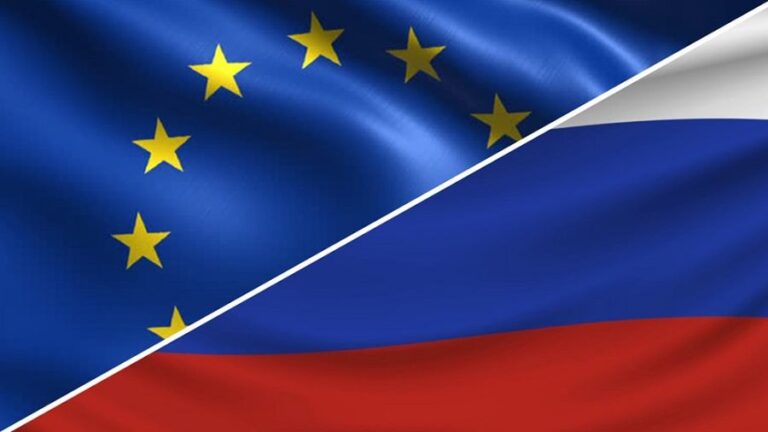Why has Ecuador Silenced Julian Assange?
The draconian measures taken by the government of Ecuador to cut off all access to the outside world by Julian Assange represent a reactionary attack on basic democratic rights that must be vigorously opposed by workers and youth in every country.
Ecuadorian authorities have blocked the WikiLeaks founder’s access to the Internet as well as all other means of communication from Quito’s embassy in London, where Assange has been confined for nearly six years. In addition, it is barring visitors from seeing him, leaving him with fewer rights than a prisoner behind bars.
Assange continues to face coordinated conspiracies by the British and US governments to have him arrested and extradited to face US charges of treason and espionage, which carry potential death penalties.
The attack on Assange is part of a global assault on democratic rights that increasingly recalls the darkest days of the 1930s, in the midst of the rise of fascism and the drive to world war. It is significant that he was subjected to his enforced isolation in part for making a telling comparison on Twitter between the German government’s recent arrest of Catalonian leader Carles Puigdemont at the behest of Spain and the 1940 arrest of the president of Catalonia, Lluís Companys, who was extradited by the Nazis to Franco’s fascist dictatorship, which tortured and executed him.
The placing of Assange under what amounts to incommunicado detention coincides with a drive by governments all over the world to impose censorship on the Internet. Assange has been in the forefront of the resistance to this antidemocratic campaign.
These actions are also bound up with a sharp turn to the right not only by the government of Ecuador, but by those of a number of Latin American countries that were previously associated with the so-called “turn to the left” or “Pink Tide,” which began in 1998 with the election of Hugo Chavez in Venezuela.
In August of 2012, Ecuador announced that it was granting asylum to Assange, who faced trumped-up sexual misconduct allegations in Sweden. The Swedish investigation—which was dropped last May—was a fabrication designed to enable his extradition from the UK to the US, where he would be tried for the offense of making public hundreds of thousands of confidential documents exposing US war crimes in Iraq and Afghanistan, along with the conspiracies of the US State Department worldwide. While Sweden has dropped the case, British authorities are still seeking Assange’s arrest.
When the government of Ecuador’s former president Rafael Correa granted Assange asylum, it declared that it was a fundamental human right that should be respected by every government and was necessary in the case of Assange, who faced the threat of ending up in Guantanamo or suffering the kind of torture and abuse meted out to Chelsea Manning. When it asked the British government to allow Assange to leave for Ecuador, London not only denied the request, but threatened to revoke the diplomatic status of Quito’s embassy and send police to storm the building.
The intransigence of the British government has kept Assange trapped in the confines of the embassy ever since under conditions described as “arbitrary, unreasonable, unnecessary, disproportionate” by the UN Working Group on Arbitrary Detention, which called for him to be freed and compensated.
The Ecuadorian government cut off Assange’s communications after he expressed his opinion via Twitter on two of the most burning current world developments, condemning Germany’s detention of Puigdemont and questioning the measures taken against Russia over wholly unsubstantiated allegations of its involvement in the poisoning of former double agent Sergei Skripal and his daughter in the English city of Salisbury earlier this month.
Assange’s messages, the Ecuadorian Foreign Ministry stated, “put at risk the good relations that the country maintains with the United Kingdom, with the rest of the states of the European Union and other nations.”
“Other nations” no doubt includes the United States, with which the new government of President Lenin Moreno has been seeking a rapprochement.
The silencing of Assange came just one day after the Ecuadorian government welcomed a delegation from the US Southern Command, the Pentagon’s arm in Latin America and the Caribbean, headed by Southcom’s deputy military commander, Gen. Joseph DiSalvo, and its chief political officer, Ambassador Liliana Ayalde. Southcom issued a statement declaring that the discussions were held to strengthen “security cooperation” and “exchange ideas and reiterate US commitment to the longstanding partnership.”
Was the timing a coincidence? Or did the Pentagon’s representatives deliver a blunt directive to their Ecuadorian counterparts to silence Julian Assange? The obvious question that follows is what other demands have been made. Do they include handing over Assange to Washington?
Since his election last May, Moreno—Correa’s hand-picked successor—has carried out a sharp turn to the right, implementing tax cuts for big business, cuts in social spending and an attempt to reduce Ecuador’s dependence on loans and investment from China in favor of closer relations with US imperialism, which is seeking to reassert its hegemony in the region and counter Beijing’s growing influence.
The turn to the right in Ecuador is part of a broader ebbing of the-called “Pink Tide,” i.e., the rule by various populist, nationalist bourgeois parties in Latin America. It is of a piece with the election of the right-wing multimillionaire Mauricio Macri in Argentina in 2015, the impeachment of Workers Party President Dilma Rousseff in 2016 and her replacement by her right-wing vice president Michel Temer, the intense crisis of the government of President Nicolas Maduro in Venezuela and the defeat of Bolivia’s President Evo Morales’s attempt to amend the constitution to secure for himself a fourth term in office.
The right-wing turn in Latin America was prepared by all of the governments that were identified with the so-called “turn to the left” that began two decades ago. While proclaiming themselves as left-wing and even “socialist”—illusions that were promoted by a host of pseudo-left organizations in Latin America, the US and Europe—these were bourgeois governments that defended private property and the interests of both native and foreign capital.
On the basis of the commodities and emerging markets boom, they were able to create minimal assistance programs for the poor and assume a stance of limited independence from US imperialism, in large part based upon expanded commercial ties with US rivals, particularly China.
With the crisis resulting from the collapse in the prices of commodities, particularly oil, upon which Ecuador depends for 40 percent of its earnings, these governments responded by implementing mounting attacks on the working class, thereby diminishing their popularity and paving the way for the return of the right.
Correa had himself ordered the severing of Assange’s Internet connection in 2016 under US government pressure over WikiLeaks’ publication of leaked emails from the Democratic National Committee, and two years earlier he had transferred more than half of Ecuador’s gold reserves to Goldman Sachs to secure the confidence of capitalist financial markets.
Similarly, the Workers Party government in Brazil and the Kirchnerista Peronist government in Argentina carried out antidemocratic measures and attacks on workers’ rights that paved the way for the rise of the most right-wing governments to rule those countries since the fall of the US-backed military dictatorships.
These developments have confirmed that the defense of democratic rights, the overcoming of the region’s pervasive poverty and inequality and the overthrow of imperialist domination can be achieved only through the political mobilization of the working class, independent of all bourgeois parties—including the PT in Brazil, chavismo in Venezuela, Peronism in Argentina and similar movements—based on a socialist program and the unification of the struggles of the workers of Latin America with those of workers in the US, Europe and across the globe.
The attack on Assange has posed this same fundamental question on an international scale. The only genuine constituency for the defense of democratic rights is the working class. Working people must come to the defense of Assange, demanding the lifting of the restrictions on his communications and his immediate freedom. Any attempt to arrest or extradite him must be answered with mass demonstrations and work actions in the UK, the US and all over the world.
This campaign in defense of Assange and the other victims of state repression can be waged successfully only as part of the struggle of the international working class to put an end to the capitalist system, whose historic crisis threatens humanity with both world war and police state dictatorship.







